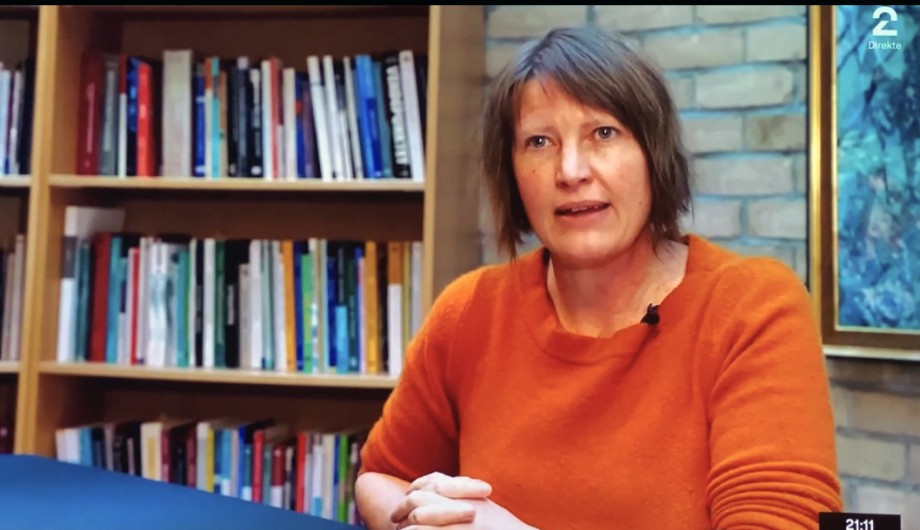Researchers from “Caring Futures: Developing Care Ethics for Technology-Mediated Care Practices” were interviewed and quoted for an article and television segment in TV2 News about challenges to the implementation of welfare technology.
The background for the report is the story of a 49-year-old patient who was given a medicine dispenser for use at home. The intention was to ensure that he took the right medicines at the right time. This resulted in daily follow-up from health personnel being replaced by the dispenser. Sadly, the patient took his own life in October after having saved up the medicines that were supposed to help him get better.

TV2 interviewed both Professor Ellen Ramvi and Associate Professor Ingvil Førland Hellstrand from UiS. Ramvi was interviewed in her role as project manager for “Caring Futures: Developing Care Ethics for Technology-Mediated Care Practices”, and Hellstrand in her capacity as a work package lead in the project.
Preoccupied with providing care
Ramvi calls for a wider debate about the consequences such incidents can have for patient care. “There is tremendous optimism and great political zeal” says Ramvi in the article. “Personally, I am concerned about the values that can be lost along the way. It is problematic if technology replaces interpersonal care. Technology can be a supplement to care, never a substitute.”
Hellstrand, who was interviewed for TV2’s nightly news segment, pointed out that there would always be challenges linked to rapid changes, especially when we find ourselves amid a drive for increased use of technology in health and care services. “In our project we are concerned that rapid and uncritical implementation of welfare technology can lead to unforeseen consequences. Many fear loneliness and being left to fend for themselves.” We can be looking at situations where both patients and professionals feel alienated, having unhelpful solutions imposed upon them. “We still lack a lot of knowledge about the consequences of implementing welfare technology” she concludes.
Text: Shalini Premachandran Frøiland